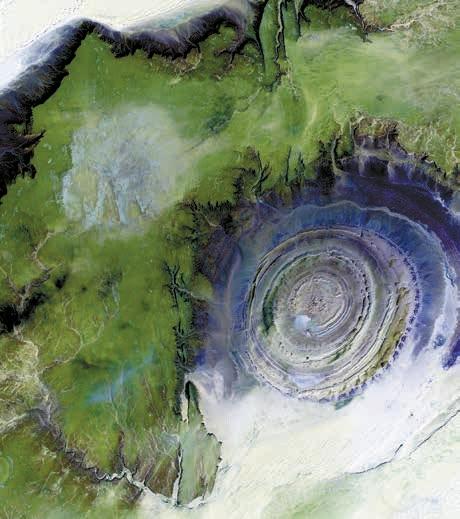
3 minute read
HEART HEALTH
from Natural Awakenings, April 2021 Palm Beach County, FL
by Natural Awakenings, Broward and Palm Beach Counties, Florida
by William H. Stager, DO
“All You Need is Love… Love is All You Need” ~ The Beatles
Advertisement
In East Asian philosophy and medicine, the Heart is the Emperor or Supreme Controller of the body and mind. The body and mind are seen as one continuum. So, like an emperor, the heart controls and coordinates and commands through the medium of our blood, but also depends on all the others around it, like a symphony in unity.
The heart is, of course, a very efficient four-chambered pump as well as an endocrine organ which makes and sends out hormones to signal and affect the rest of the body. It starts beating around the third week of embryonic life and continues nonstop until the end of our lifetime. The heart beats faster when we are young and slows with age. For instance, an infant’s heart rate ranges from about 100 to 150 beats per minute, while an adult averages between 60 and 100 beats per minute. There are many conditions, illnesses and injuries which affect the heart, causing it to beat too slow or too fast or irregularly. It pumps gallons of blood through miles of arteries and veins thousands of times per day. It’s a marvelous creation, and with all our advanced science and medicine, we still can’t replicate and replace it mechanically very well.
Put your hand over your heart for a moment and feel its pulsations and energy. Think of the electrical energy it generates and how we can actually record, read and interpret it on the electrocardiogram. Appreciate its constant work and all that it has done for you, serving you faithfully in spite of the use and abuse it gets over a lifetime.
In East Asian philosophy, as well as in many others, the heart is seen as the home of “shen”, approximately translated as spirit or consciousness. Love, life and joy are expressions of our consciousness, and the heart is often seen as the center of these. The heart emperor thus rules its kingdom with these qualities.
From the energy perspectives, the heart is seen as the fourth of seven major energy centers or chakras in the body, each with its own shape, color and sound vibration. In the Kabbalah, the heart is called Tifereth or Beauty, the sixth of the ten Sefiroth or centers on the Tree of Life. In East Asian philosophy, all of creation is made from five basic elements in various amounts and combinations. These elements are wood, fire, earth, metal and water. All the organs in our body have a predominant element, and to carry the image even further, so do our personality and behavior patterns.
The heart’s predominant element is fire, and one can easily see that the heart’s “fire” is the source and expression of its warmth and unconditional love. When one’s shen or spirit is strong, it shows in one’s vitality, complexion, color, mood, and in the sparkle in one’s eyes. We even say things like, “He is strongspirited” or “She is big-hearted,” and so on. The opposite is true, too. When the heart is weak or ill, then physically and emotionally we manifest palpitations, blood pressure changes, anxiety, depression, etc.
Lots of interesting research and books have been written to corroborate and link the two-way street between heart health and emotional health. The quality of our emotional health reflects, influences and is influenced by our physical health. It’s often a simple truth that when we feel well, we act well; and when we feel bad, we act badly.
Everyone knows what love feels like. Every day we express our love in countless different ways to ourselves, our family, friends, coworkers, pets, the Earth, God, and on and on. Zillions of poems, prayers, songs, stories, films, paintings, sculptures and creations of every kind have tried to express that special something called love. It gives every one and every thing reason for living. In fact, scriptures, or sacred expressions in every language equate love, our soul and God as one and the same.
The most fundamental principle of medicine is love. ~ Paracelsus
Where there is love of humanity, there is love of the art of healing. ~ Hippocrates
Let your best means of treating people be your love for them. ~ Hippocrates
William H. Stager, DO can be reached at 561-832-1894. See ad page 5.





